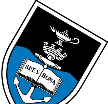Without academic freedom, universities cannot survive
In March 2015, the Academic Freedom Committee (AFC) at the University of Cape Town (UCT) invited Mr Flemming Rose, previously cultural editor of Jyllands Posten, to deliver the annual TB Davie lecture on academic freedom. At an AFC meeting in May this year, the AFC was asked by the UCT Executive to consider withdrawing the invitation to Mr Rose. The UCT Executive presented the AFC with a number of arguments – citing, for instance, “security concerns” and the “threat to transformation” as reasons to disinvite Mr Rose.
None of these arguments was found to be sufficiently compelling. The AFC thus refused to withdraw its invitation to Mr Rose. In July, the UCT Executive overrode the decision of the AFC and withdrew the invitation. Writing on behalf of the Executive to explain the reasons for their decision, Dr Max Price – with no hint of irony – affirmed UCT’s commitment “to the right to academic freedom and freedom of expression”; the Executive also stated that it views these rights “as fundamental and a cornerstone of our institutional culture.”
Despite this avowed commitment to academic freedom, it is clear to many at UCT that the Executive’s commitment falls far short of what it should be, and that far from seeing the right to academic freedom and freedom of expression as a cornerstone of university culture, it is all too often viewed as a hindrance. Although the case of Mr Rose is the most egregious example of this, it is unfortunately not the only one.
In January 2016, the Communications and Marketing Department at UCT capitulated to threats by the Rhodes Must Fall (RMF) collective and removed an exhibition; in March, an exhibition by RMF was itself vandalised by members of UCT’s Trans Collective, and was shut down.
None of those involved in the shutting down of these exhibits was censured. In a shameful display of self-censorship, both the UCT Executive and various Faculties removed many artworks from UCT campuses. To make matters worse, the AFC was not even approached for its views, nor were the views of the wider UCT community solicited prior to the removal of these artworks.
UCT is becoming a campus where unpopular or contentious views are often silenced, and where those who are deemed “controversial” are either not permitted to speak, or unjustly censured if they do. In his letter to the AFC, Dr Price wrote that “Mr Rose is seen by many as a persona non grata” who is “regarded by many around the world as right wing, Islamophobic, someone whose statements have been deliberately provocative, insulting and possibly amount to hate speech.”
Note that Dr Price is aware that these claims amount to little more than ad hominem accusations against Mr Rose – “No doubt all these claims can be contested” he writes. Nevertheless, it is considered a sufficiently good reason to disinvite Mr Rose that these descriptions about him are merely “regarded” as being true – not that they are actually true. Not only is this insulting to Mr Rose, and to the AFC, who invited him, but it blames Mr Rose himself for the Executive’s decision.
Threats to academic freedom and the silencing of unpopular views present a grave danger to the very soul of a university. Over 2000 years ago, Plato reminded us of the importance – indeed the necessity – of distinguishing appearance from reality; no university worth its name can afford to blur this distinction. And yet I fear that this is precisely what is now happening at UCT – ad hominem attacks replace genuine arguments with those with whom one disagrees; views that are experienced as unorthodox, unpopular, or challenging are attacked, without due consideration for their truth or justification.
If this trend continues, we will no longer have a university, but something else – a place where orthodoxy replaces the pursuit of truth and excellence, where academics are silenced, and where rhetoric replaces argument.
During the dark days of Apartheid, the threats to academic freedom were largely external, emanating from an oppressive regime. It is tragically ironic that the current threats to academic freedom are home grown and freely borne. It is perhaps time to suspend all future TB Davie lectures – at least until such time as UCT re-invites Mr Rose on to campus to deliver one.
Elisa Galgut is a member of the Department of Philosophy at the University of Cape Town.

